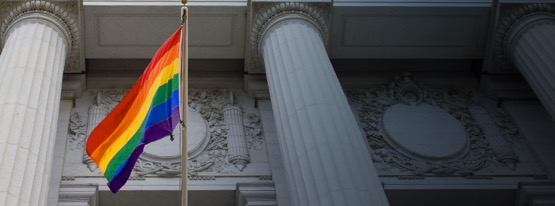
by Todd A. Cox, LDF Policy Director
Today marks the 50th anniversary of the landmark civil rights Supreme Court decision in Newman v. Piggie Park, which ruled that businesses cannot justify discrimination — such as refusing to serve Black customers as was the case then — because of religion.
Yet, the issue is now being re-litigated. This time, by framing the issue as one of free speech and religious liberty, a Colorado bakery is trying to rewrite the playbook for dismantling civil rights protections against discrimination.
But no matter how the bakery reinvents the argument for allowing even some discrimination, Piggie Park still controls the outcome of this case: there is absolutely no room in our anti-discrimination laws to carve out an exception for religious beliefs. And this week, as we think about the legacy of Piggie Park, we should all consider the lessons from the past that warn against the looming civil rights crisis that a decision counter to Piggie Park could spell.
In the 1968 seminal Piggie Park case, a restaurant owner claimed that his deeply-held religious beliefs prevented him from serving Black customers because racial intermixing “contravene[d] the will of God.” He held tight to his beliefs when he blocked the entrance of a Black minister who sought to patronize the restaurant, and again when he conditioned the patronage of two other Black customers on consuming his barbecue off premises. The Supreme Court ruled that the restaurant’s refusal to serve the customers violated Title II of the Civil Rights Act of 1964, which prohibits discrimination in public accommodations.
In Masterpiece Cakeshop v. Colorado Civil Rights Commission, the Supreme Court will soon decide the same: whether the Colorado bakery that refused to sell a wedding cake to a same-sex couple unlawfully discriminated against them. The bakery owner believes he should not be required to sell a wedding cake to the couple because it would be tantamount to compelling the bakery to endorse same-sex marriage. The owner argues that this violates his constitutional rights to freedom of religion and speech; he considers his culinary skills an art form protected by the First Amendment’s freedom of speech guarantee.
But as my organization, the NAACP Legal Defense and Educational Fund, Inc., established in our amicus brief to the Supreme Court, Masterpiece is no more about custom cake than Piggie Park was about world-famous barbecue.
As the Piggie Park decision declared 50 years ago, businesses do not have a constitutional right to discriminate because of an owner’s religious views. Re-packaging an argument that has been repeatedly rejected over the past 50 years as a freedom of speech quandary does not change this long-standing legal principle. Indeed, Piggie Park’s restauranteur was also described as an artist, and to this day the restaurant offers custom wedding catering. But also, there is no legal principle the Court could use that would limit those claiming exemptions for “artistic” or “custom” products that would reconcile with federal civil rights laws and state and local anti-discrimination laws modeled after them.
An outcome in Masterpiece conflicting with the precedent set in Piggie Park will have a profound impact on our civil rights protections and the legal regime that ensures them. While a decision favoring the bakery would certainly marginalize LGBT Americans, it could also permit discrimination against other historically protected groups such as people of color, women, and religious minorities because carving out exemptions for some creates a license to discriminate for all. Fortunately, we don’t have to look far for the legal blueprint that could prevent this result.
The Supreme Court simply cannot grapple with the issues in Masterpiecewithout first considering how a decision could impact the principle established 50 years ago this week in Piggie Park, that when a business opens its doors to the public, it must serve everyone on the same terms.